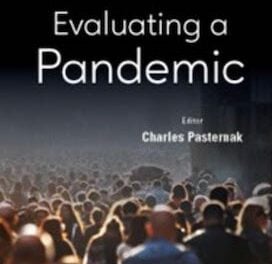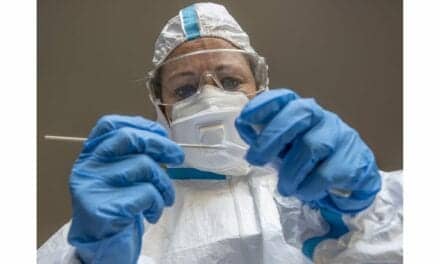It is a well-known fact that dogs don’t just roll over and play fetch. With their enhanced sense of smell, working dogs help people in a variety of professional capacities, including aiding in search-and-rescue, finding illegal substances, and detecting bombs.
Now, trained canines can even help sniff out the coronavirus and its variants, according to Bio-Detection K9 (BDK9), a company based in Columbus, Ohio, that has developed proprietary techniques for training dogs to detect SARS-CoV2 at 97% to 99% accuracy levels. BDK9 has been using dogs to detect viruses, bacteria, and fungus for over a decade in partnership with the U.S. Department of Agriculture and other government agencies.
Developed by William Schneider, PhD, chief research scientist for BDK9, these new training aids teach dogs to directly detect the coronavirus itself—not the host response generated by sick human beings. Using technology to elevate canine scent-detection thresholds, BDK9 teams can detect extremely subtle amounts of viral antigens that infected individuals shed through their skin. By simply sniffing a hand, the sensitive nostrils of a trained dog can indicate the presence of the COVID-19 virus within a matter of seconds, according to the company, offering an additional layer of screening protocol.
“We understood the severity of this new [delta] strain of COVID-19, so we came together to ensure we could detect it,” says Jerry Johnson, BDK9 president. “As new threats emerge, we will stay at the forefront of scientific research and training protocols and continue to prepare our dogs to offer a more effective service to the public.”
The approach used to create the initial training aid focused on the original alpha variant of COVID-19. Fortunately, that same approach can be used to rapidly generate training aids that represent other SARS-CoV2 variants.
“All of the SARS-CoV2 variants are significant in terms of their changed biology,” Schneider says. “But in terms of genetics, all of the variants are very closely related. We’re very confident that the scent profiles of the variants, which is how the dogs detect the virus, will be nearly identical. Still, because of the prevalence and risk associated with the new variants, it was critical for us to test the ability of our dogs to find all variants.”
Schneider anticipates more variants before the pandemic is controlled or eliminated, which is why BDK9 is in the process of synthesizing training aids that represent the beta, gamma, and delta variants.
“We anticipate testing our dogs’ capacity to detect all of these variants by the end of the month,” Schneider says.
The company plans to channel efforts toward deploying COVID-detecting trained dogs around the world, aiding the general population in resuming social and sporting events safely.





